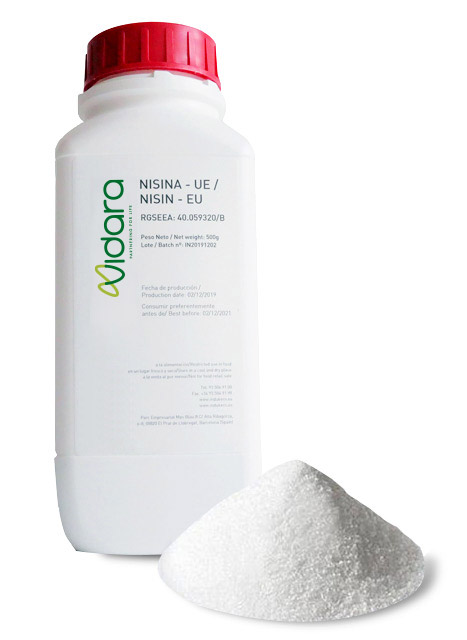


The product
Nisin as a food preservative
Nisin is a 34-amino acid residue polypeptide which is produced naturally by some strains of Streptococcus Lactis (subsequently known as Lactococcus Lactis subsp. Lactis).
Nisin is a greyish-white or slightly yellowish powder that acts as an antimicrobial food preservative. It is particularly effective against the Gram+ bacteria (Bacillus spp, Lactobacillus spp, Leuconostoc spp., Listeria spp, Micrococcus spp., Enterococcus spp. Pediococcus spp. and Staphilococcus spp.) and spore-producing bacteria (Clostridium spp.). It is not effective against Gram- bacteria, yeasts and moulds.
Nisin is used primarily in thermo-processed and packaged products. Nisin meets the FAO/WHO conditions for nisin concentrations and has been found to be a safe food additive by the FAO/WHO Expert Committee on Food Additives.
Nisin is widely used in monitoring the deterioration of cheese processing and the processing of cheese products, dairy products, canned vegetables, soups and juices. It is also used in alcoholic beverages, feta cheese, and some meat and fish products.
It can be used by adding it directly if the food contains water, or by prior suspension in water. The dosage for use depends on factors such as the type of food, the microbial load of the raw materials and the end product, and heat parameters in the processing.
It is legally permitted and applied as a natural antimicrobial agent in more than 50 countries around the world.


